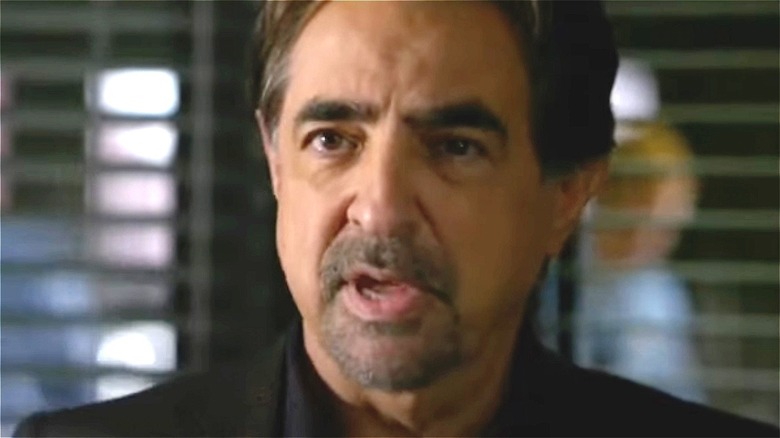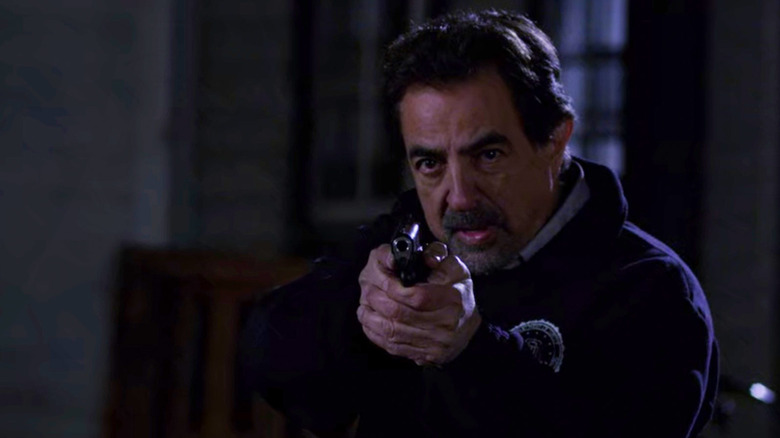Rossi's Worst Moment On Criminal Minds
CBS's police procedural "Criminal Minds" ran for 15 seasons, from 2005 to 2020. That longevity makes it one of the most successful TV series of the 21st century, even among non-police procedurals. Every cop show needs something distinct to set itself apart from other cop shows. On "Criminal Minds," it was the unusually dark subject matter. The show focused on the agents of the FBI's Behavioral Analysis Unit, a real-life investigative squad that builds criminal profiles of the country's most heinous killers–or "unsubs," in "Criminal Minds"-speak. It's a brutal show, so much so that the actor who played Jason Gideon, Mandy Patinkin, left the show over its depiction of violence (via The Hollywood Reporter).
In addition to the depraved crimes themselves, "Criminal Minds" also explores how heinous crimes affect the agents who investigate them. Many of the characters on the show suffer from psychological fallout that infects their professional and personal lives.
Rossi (Joe Mantegna) is a particularly troubled character. He has multiple failed marriages, and he's not above breaking the law in order to obtain his version of justice. One moment in particular from Season 10 stands out among the worst.
Rossi straight-up murdered an unsub for revenge
Rossi was added to the cast in Season 3, replacing Jason Gideon. "Criminal Minds" explained that Gideon retired from the BAU and went to live in a remote cabin. Seven seasons later, "Criminal Minds" finally got around to formally killing Jason Gideon off.
Before Rossi joined the show and took over the BAU, he and Gideon were partners in the unit. In the episode "Nelson's Sparrow," it's revealed that early in their careers, Rossi and Gideon tried to capture the serial killer and kidnapper Donnie Mallick, an obsessed collector who poses his victims like birds.
The episode begins when Mallick kills Gideon in his cabin. After the ensuing investigation, the BAU finally tracks Mallick down to his home, where he's kidnapped a young woman. Mallick attempts to flee and Rossi corners him in his backyard. At this point, Mallick tosses down his gun and tries to surrender, but Rossi goads him, telling him that he would be a legend in the penitentiary if he managed to kill not one but two FBI agents. Mallick picks his gun back up, prompting Rossi to shoot him. Since Rossi technically shot Mallick in self defense, he faces no repercussions for his actions.
Often, when a police officer has a personal connection to a case, they're not allowed to investigate it because personal feelings might cloud their judgment. Situations like Rossi's at the end of "Nelson's Sparrow" is exactly why that's the norm.
Then again, when you have an actor like Joe Mantegna, you want to give him morally complicated scenes like this.

